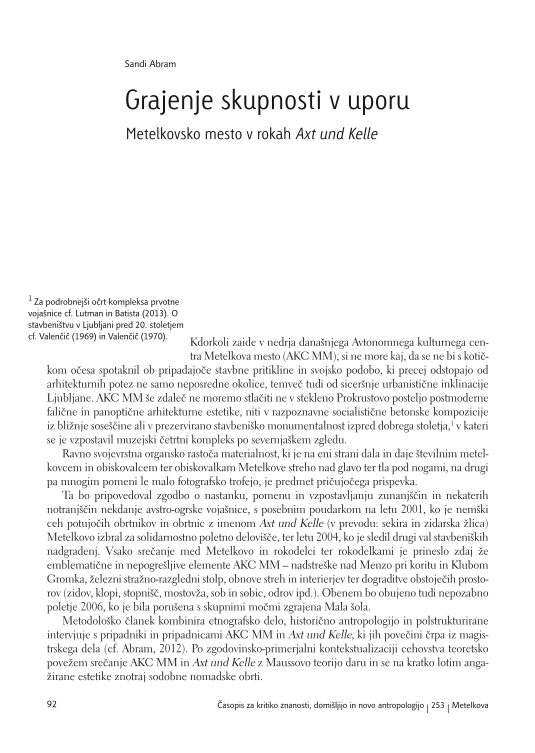The article deals with nomadic journeymen and journeywomen from the German guild Axt und Kelle and with their encounter with Metelkova. At the outset, the historical trajectory of German guilds, the constitution of Axt und Kelle and the custom of tramping artisans (i.e., walz) are highlighted. The hypothesis that Axt und Kelle make use of re-appropriated spaces (i.e., squats) either as a sporadic proactive clientele or they choose such spaces as their annual summer solidarity work camps is defended on a twofold basis: firstly, squats are considered and constructed as a substitute of the previously guaranteed houses of call (i.e., herberge) by the classical guilds. Secondly, the guild intentionally constituted itself as a political subject with the mission of empowering communities in resistance. ACC Metelkova City was chosen as a solidarity work camp twice in the early and mid-00s when many emblematic interiors and exteriors were created. Focusing on the non-instrumentalized (own) production of knowledge, exchange of experiences and outwardly oriented distribution, the article views the reciprocal interaction between ACC Metelkova City and Axt und Kelle through Mauss’s theory of the gift.




